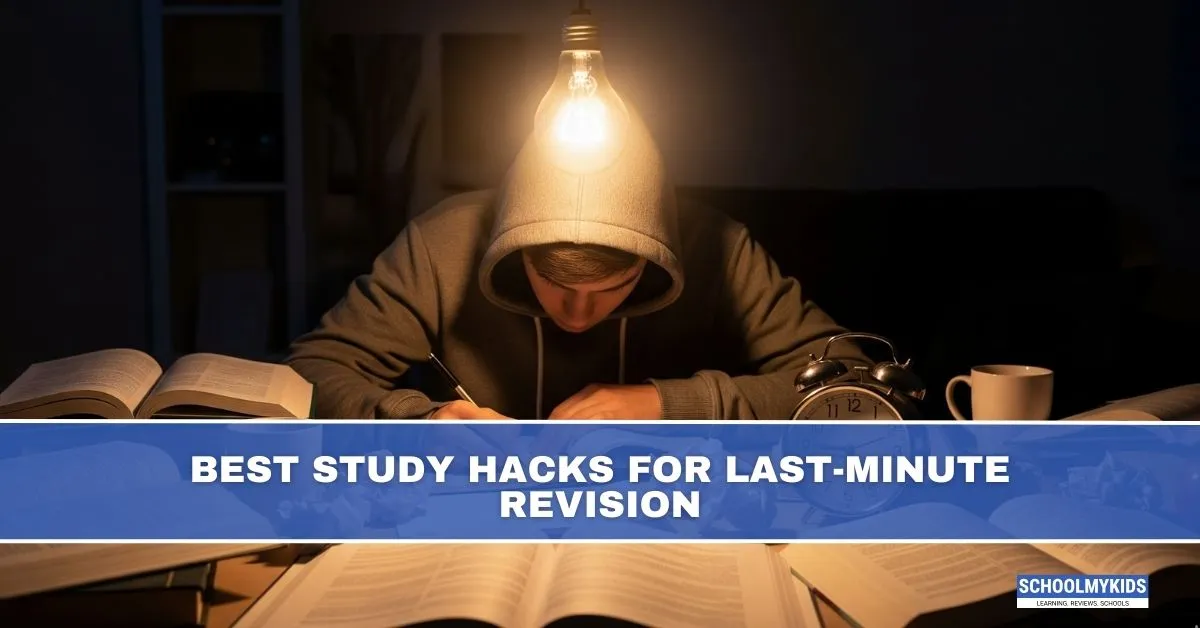Last-minute revision can feel overwhelming, but with the right strategies, you can maximize your learning efficiency and perform well even under time pressure. While consistent, long-term studying is always preferable, these proven techniques will help you make the most of your remaining time.
Strategic Time Management
Prioritize High-Impact Topics
- Focus on weighted content: Identify which topics carry the most marks or are most likely to appear on your exam
- Use the 80/20 rule: Concentrate 80% of your time on the 20% of material that will yield the highest returns
- Review past exams: Look at previous years' questions to identify recurring themes and important concepts
Create a Realistic Study Schedule
- Break down remaining time: Divide your available hours into focused study blocks of 25-50 minutes
- Account for breaks: Include 10-15 minute breaks between sessions to maintain concentration
- Build in buffer time: Leave some flexibility for topics that need extra attention
Active Learning Techniques
The Feynman Technique
- Explain concepts aloud: If you can't explain a topic in simple terms, you don't understand it well enough
- Teach someone else: Find a study partner or even explain concepts to an imaginary audience
- Identify knowledge gaps: When you struggle to explain something, you've found what needs more attention
Spaced Repetition and Testing
- Use flashcards strategically: Focus on concepts you find challenging, not ones you already know well
- Practice active recall: Test yourself without looking at notes, then check your answers
- Implement micro-sessions: Review the same material multiple times in short bursts rather than one long session
Memory Enhancement Strategies
Visual and Auditory Aids
- Create mind maps: Visual representations help connect related concepts and improve recall
- Use mnemonics: Develop memory devices for complex information, formulas, or sequences
- Record and listen: Make audio recordings of key points and listen while commuting or exercising
Memory Palace Technique
- Associate information with locations: Link concepts to familiar places in your home or campus
- Create vivid mental images: The more unusual or emotional the association, the better you'll remember it
- Practice mental walks: Regularly "visit" your memory palace to reinforce the connections
Optimizing Your Physical and Mental State
Brain-Boosting Habits
- Stay hydrated: Dehydration can significantly impair cognitive function and concentration
- Eat brain food: Choose foods rich in omega-3s, antioxidants, and complex carbohydrates
- Get quality sleep: Even 6-7 hours of sleep is better than an all-nighter that leaves you mentally foggy
Stress Management
- Practice deep breathing: Use 4-7-8 breathing (inhale for 4, hold for 7, exhale for 8) to reduce anxiety
- Take power naps: 20-minute naps can restore alertness without causing grogginess
- Stay positive: Maintain confidence in your ability to learn and perform well
Specific Study Techniques
The Cornell Note-Taking System
- Divide your page: Create sections for notes, cues, and summary
- Write key questions: In the cue column, write questions that your notes answer
- Summarize regularly: Create brief summaries to reinforce learning
Speed Reading with Comprehension
- Eliminate subvocalization: Stop "hearing" words in your head to increase reading speed
- Use your finger as a pacer: Guide your eyes faster than your normal reading pace
- Focus on key sentences: First and last sentences of paragraphs often contain main ideas
Pattern Recognition
- Group similar problems: Practice different variations of the same type of problem consecutively
- Identify question patterns: Learn to quickly recognize what type of response different question formats require
- Create formula sheets: Consolidate all important formulas and procedures in one place
Technology and Tools
Digital Resources
- Use apps strategically: Tools like Anki for flashcards, Forest for focus, or Pomodoro timers for time management
- Watch educational videos: YouTube channels and online lectures can explain difficult concepts quickly
- Join online study groups: Collaborate with classmates through video calls or study platforms
Analog Techniques
- Color-code your notes: Use different colors for different types of information (definitions, examples, formulas)
- Create physical flashcards: The act of writing helps reinforce memory
- Use sticky notes: Place important formulas or concepts where you'll see them frequently
Common Mistakes to Avoid
Counterproductive Behaviors
- Don't re-read passively: Simply reading notes multiple times is one of the least effective study methods
- Avoid perfectionism: Focus on understanding core concepts rather than memorizing every detail
- Don't multitask: Switching between subjects or having distractions reduces learning efficiency
Time Wasters
- Skip topics you already know well: Don't waste precious time on familiar material
- Avoid social media: Use website blockers if necessary to maintain focus
- Don't panic: Anxiety wastes mental energy that could be used for learning
Final Preparation Strategies
The Night Before
- Do a final review: Go through your summary notes or flashcards one last time
- Prepare everything: Lay out clothes, gather supplies, and plan your route to avoid morning stress
- Get adequate rest: Stop studying at least one hour before bedtime to allow your mind to process information
Day of the Exam
- Arrive early: Give yourself time to settle and review key points calmly
- Warm up your brain: Do a few practice problems or review main concepts
- Stay confident: Trust in the preparation you've done, even if it felt rushed
Making Peace with Imperfection
Remember that last-minute revision is about damage control and strategic learning, not perfection. Focus on understanding the most important concepts thoroughly rather than trying to cover everything superficially. Your goal is to maximize your performance given the time constraints, not to achieve the same results you would have with months of preparation.
The key to successful last-minute studying lies in working smarter, not just harder. By implementing these evidence-based techniques and maintaining a positive mindset, you can significantly improve your exam performance even when time is running short. Remember, many students have succeeded with last-minute preparation – the difference lies in using the right strategies and maintaining focus under pressure.








Be the first one to comment on this story.